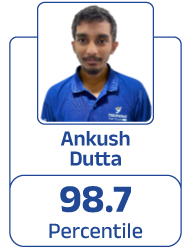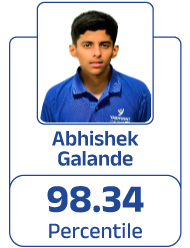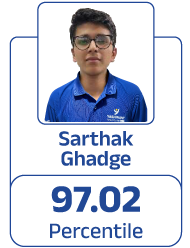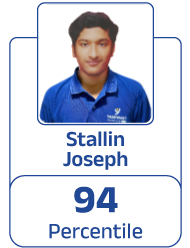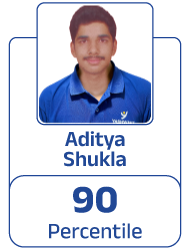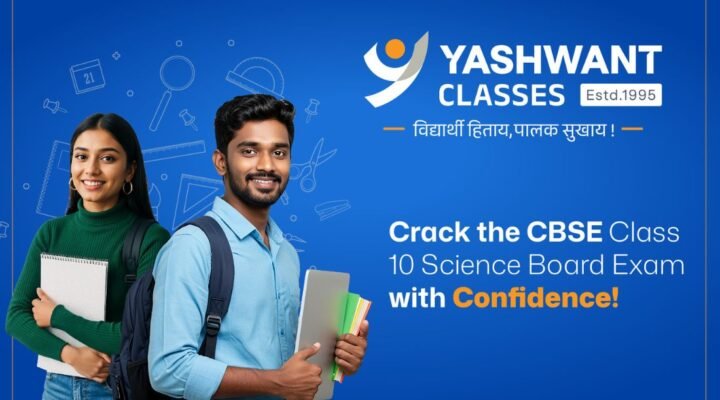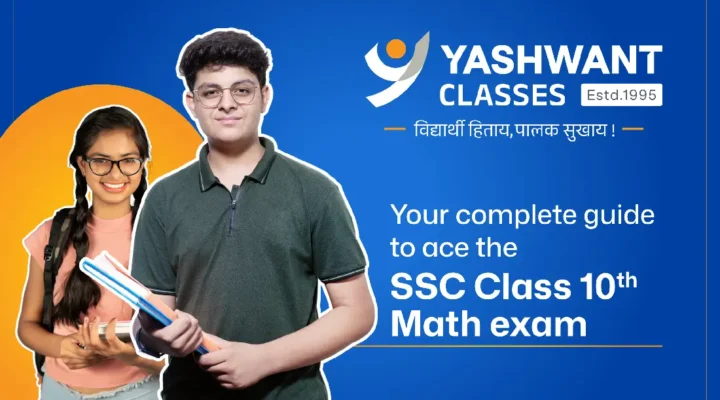
Courses
IIT JEE Main and Advanced
YOUR PATH TO BECOMING AN IITIAN

- MEET OUR ACADEMIC HEAD
Jay Shankar Jha
A BTech graduate, Jay Shankar Jha is a passionate mathematics educator with 14+ years of experience. Having mentored over 15,000 JEE and NEET aspirants, he is a role model for students, known for his expertise and dedication. As the JEE department head at Yashwant Classes, he continues to inspire and shape future engineers and doctors with his strategic teaching approach.
IIT-JEE (Joint Entrance Examination) is one of the most important entrance exams in India, giving students a chance to study at IITs, NITs and other top engineering colleges. Every year, lakhs of students appear for JEE Main and JEE Advanced, which can feel challenging without the right plan.
At Yashwant Classes, we guide the students in every step in building strong basics, teaching smart methods, and giving them the confidence to perform well in IIT JEE 2026. One of the Best IIT JEE Coaching Classes in Balaji Nagar, Pune, we provide a structured approach that helps students achieve their goals. Our goal is simple: to make concepts clear and preparation stress-free so that every student feels ready for success. In Pune, we are known for our consistent results and student-focused approach to learning.
IIT JEE MAIN
JEE Main is the first step for students who dream of studying in IITs and other top engineering colleges. It also acts as the qualifying exam for JEE Advanced. To do well in JEE Main, students need clear basics from NCERT, regular problem-solving practice and smart use of mock tests. At Yashwant Classes, we help students prepare in a structured way so they can score high and move confidently towards their IIT dream.
IIT JEE Main 2026 Syllabus
The JEE Main 2026 syllabus includes Physics, Chemistry and Mathematics from both Class 11 and 12. It follows NCERT closely, but students need more than just reading, they must practice applying concepts and solving advanced problems. With a smart study plan and regular guidance, covering the syllabus becomes easier and students can build the confidence needed to perform well in the exam.
| Mathematics | Physics | Chemistry |
|---|---|---|
| Sets, Reelations, and Functions | Units and Measurement | Basic Concept in Chemistry |
| Complex Number & Quadratic Equations | Kinematics | Atomic Structure |
| Matrices and Determinants | Laws of Motion | Chemical Bonding & Molecular Structure |
| Permutation & Combination | Work, Energy & Power | Chemical Thermodynamics |
| Binomial Theorem & Its Applications | Rotational Motion | Solutions |
| Sequence & Series | Gravitation | Equilibrium |
| Limit, Continuity & Differentiability | Properties of Solids & Liquids | Redox Reactions & Electochemistry |
| Integral Calculus | Thermodynamics | Chemical Kinetics |
| Differential Equations | Kinetic Theory of Gases | Classification & Elements & Periodicity in Properties |
| Coordinate Geometry | Oscillation & Waves | P-block Elements |
| Three-Dimensional Geometry | Electrostatics | D-& F-block Elements |
| Vector Algebra | Current Electricity | Coordination Compounds |
| Statistics & Probability | Magnetic Effect of Current & Magnetism | Purification & Characterization of Organic Compounds |
| Trigonometry | Electromagnetic Induction & Alternating Current | Some Basic Principles of Organic Chemistry |
| - | Electromagnetic Waves | Hydrocarbons |
| - | Optics | Organic Compounds Containing Halogen |
| - | Dual Nature of Matter & Radiation | Organic Compounds Containing Oxygen |
| - | Atoms & Nuclei | Organic Compounds Containing Nitrogen |
| - | Electronics Devices | Biomolecules |
| - | Experiment Skills | Principles Related to Practical Chemistry |
Sets, Relations, and Functions
Complex Numbers and Quadratic Equations
Matrices and Determinants
Permutation and Combination
Binomial Theorem and Its Applications
Sequence and Series
Limit, Continuity, and Differentiability
Integral Calculus
Differential Equations
Coordinate Geometry
Three-Dimensional Geometry
Vector Algebra
Statistics and Probability
Trigonometry
Units and Measurement
Kinematics
Laws of Motion
Work, Energy and Power
Rotational Motion
Gravitation
Properties of Solids and Liquids
Thermodynamics
Kinetic Theory of Gases
Oscillation and Waves
Electrostatics
Current Electricity
Magnetic Effect of Current and Magnetism
Electromagnetic Induction and Alternating Current
Electromagnetic Waves
Optics
Dual Nature of Matter and Radiation
Basic Concepts in Chemistry
Atomic Structure
Chemical Bonding and Molecular Structure
Chemical Thermodynamics
Solutions
Equilibrium
Redox Reactions and Electrochemistry
Chemical Kinetics
Classification of Elements and Periodicity in Properties
P-block elements
d- and f-block elements
Coordination Compounds
Purification and Characterization of Organic Compounds
Some Basic Principles of Organic Chemistry
Hydrocarbons
Organic Compounds containing Halogen
Organic Compounds containing Oxygen
IIT JEE Main 2026 Exam Pattern
The JEE Main 2026 exam is conducted online as a computer-based test. It has objective questions from Physics, Chemistry and Mathematics, designed to check both your knowledge and speed. Knowing the exam pattern, marking scheme and how much time to give each section helps students plan better and avoid mistakes on exam day. With the right practice, the pattern becomes familiar and less stressful.
IIT JEE MAIN Paper Pattern and Markings
| Section A (All Questions are Compulsory) | Section B (All Questions are Compulsory) | ||
|---|---|---|---|
| Types of Question | MCQ | MCQ | |
| Physics | 20Q × 4 Marks: 80 Marks | 5Q × 4 Marks: 20 Marks | Total: 100 Marks |
| Chemistry | 20Q × 4 Marks: 80 Marks | 5Q × 4 Marks: 20 Marks | Total: 100 Marks |
| Math | 35Q × 4 Marks: 140 Marks | 10Q × 4 Marks: 40 Marks | Total: 180 Marks |
| Marking Scheme | +4 for correct answer −1 for incorrect answer 0 for unanswered | +4 for correct answer −1 for incorrect answer 0 for unanswered | |
| Total Marks | 240 Marks | 60 Marks | 300 Marks |
| Time / Q | 2.4 minutes | 2.4 minutes |
IIT JEE Main 2026 Eligibility Criteria
For JEE Main 2026, you must have passed, or be appearing in, your Class 12 (10+2) or equivalent examination in 2024, 2025, or 2026 from a recognised board, with Physics, Chemistry, and Mathematics (or another technical/vocational subject) as required subjects. There is no age limit; however, for admission to NITs, IIITs, and CFTIs, a minimum of 75% marks in Class 12 is required, or you must be in the top 20 percentile of your board. Knowing these rules early helps students avoid last-minute confusion and stay focused on their preparation with a clear mind.
IIT JEE Main 2026 Exam Dates
The JEE Main 2026 exams are tentatively scheduled for two sessions: Session 1 in the last week of January 2026, and Session 2 in the first week of April 2026. The National Testing Agency (NTA) will announce the detailed schedule for registration, admit cards, and exam days on its official website. Students should keep checking updates so they can prepare according to the timeline and avoid missing any important deadlines.
JEE ADVANCED
JEE Advanced is the last step for students who want to get into the IITs. Only those who score well in JEE Main can appear for this exam, which tests deep understanding and problem-solving skills. It is challenging, but with the right preparation, proper guidance and regular practice, students can turn this exam into their biggest opportunity to achieve their IIT dream
JEE Advanced Exam
The JEE Advanced exam is tougher than the JEE Main and is designed to test how well students truly understand and apply concepts, not just memorise them. It is conducted by one of the IITs each year and often has unexpected question formats. To succeed, students need more than just hard work, they need smart strategies, consistent practice and strong problem-solving skills.
JEE Advanced 2026 Syllabus
The JEE Advanced 2026 syllabus is similar to JEE Main but covers topics in Physics, Chemistry and Mathematics at a much deeper level. Students need to go beyond NCERT basics and practice advanced problems to match the exam’s difficulty. With a focused study plan that connects both the JEE Main and Advanced syllabus, students can build a strong command over concepts and feel confident while solving complex questions.
JEE Advanced 2026 Exam Pattern
The JEE Advance 2026 exam has two compulsory papers, each with different types of questions like multiple choice, numerical and integer-based answers. The marking system includes full, partial and even negative marking, which makes accuracy and time management very important. Understanding the exam pattern well helps students plan their strategy better and face the test with confidence.
JEE Advanced 2026 Eligibility Criteria
To appear for JEE Advanced 2026, you must be among the top 2,50,000 students in JEE Main 2026 Paper 1. You should be born on or after October 1, 2000 (relaxed to October 1, 1995 for SC, ST, and PwD). Each student can attempt JEE Advanced only twice in two consecutive years. Your first Class 12 (or equivalent) attempt should be in 2024 or 2025, though some 2023 students are also allowed if their board results came after June 28, 2023. Lastly, you should not have joined an IIT earlier, except in cases like a preparatory course in 2024 or if you were allotted a seat in 2024 but did not join or withdrew.
JEE Advanced 2026 Exam Dates
The official exam date for JEE Advanced 2026 has not yet been announced by the National Testing Agency (NTA) or IIT Roorkee. However, based on past trends, the exam is likely to be held in May 2026, with educational portals suggesting possible dates such as May 14 or May 21, 2026. The complete schedule, including registration, admit cards, and result details, will be released by the end of 2025 along with the official information brochure on the JEE Advanced website. Students should keep checking these updates regularly so they can plan their revision, complete applications on time, and stay fully prepared for this crucial step toward securing admission into IITs.
Colleges via IIT JEE Advanced
- IIT Madras
- IIT Delhi
- IIT Bombay
- IIT Kanpur
- IIT Kharagpur
- IIT Roorkee
- IIT Guwahati
- IIT Hyderabad
- IIT BHU
- IIT ISM Dhanbad
- IIT Indore
- IIT Varanasi
- IIT Mandi
- IIT Ropar
- IIT Gandhinagar
- IIT Jodhpur
- IIT Patna
- IIT Bhubaneshwar
- IIT Tirupati
- IIT Palakkad
- IIT Jammu
- IIT Dharwad
- IIT Bhilai
Frequently Asked questions for IIT-JEE
JEE Mains registration 2026 is expected to begin in the last quarter of 2025, through the official NTA website.
The JEE Mains admit card 2026 will be released about one week before the exam date on the official NTA portal.
Students can attempt JEE Mains twice a year (Session 1 and Session 2), giving them a maximum of 6 attempts over 3 consecutive years from passing Class 12.
The qualifying marks for JEE Mains vary each year based on difficulty and student performance. On average, candidates need around the 90–100 percentile (100–120 marks out of 300) to qualify for JEE Advance, though the cut-off differs for categories.
Yes, students can appear in both sessions and the best score out of the two is considered for ranking.
Yes, for admission to NITs, IIITs and GFTIs, students must have 75% (65% for reserved categories) in Class 12 or be in the top 20 percentile of their board.
The total number of seats available in IITs across India is 18,160.
Generally an All India Rank (AIR) below 18,000 can help secure admission to a good IIT.
Why choose Yashwant Classes?
Learn from IITians, NITians, and experienced mentors with one-on-one doubt-solving.
Our IIT & NIT alumni interact with students to inspire, guide, and share their success strategies.
Small, well-structured batches ensure personalized attention and better understanding.
Comprehensive, exam-oriented material with a special focus on JEE Advanced preparation.
Regular in-depth analysis of tests and doubt clearance sessions to strengthen concepts.
Subject-specific faculty and targeted teaching approaches for JEE aspirants.
Save time with structured coaching schedules integrated with 11th & 12th college admissions.
Expert counseling to help students choose the right college based on JEE ranks.
At Yashwant Classes, we don’t just prepare students for JEE; we shape future engineers!
Hey, Join us!
** We respect your privacy and do not tolerate spam and will never sell, rent, lease or give away your information to any third party.
IIT JEE Achievers 2025
